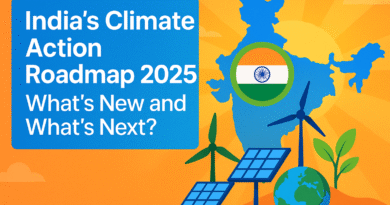India’s Top Headlines This Week: What You Need to Know
As India continues to shape global conversations in politics, entertainment, economy, technology, and society, staying updated with the latest developments is crucial. This week, the nation witnessed significant events across sectors, from major policy discussions and economic forecasts to Bollywood blockbusters and critical tech alerts. Here’s a comprehensive roundup of India’s top headlines for the week, offering context and analysis to help you understand their broader implications.
Politics: Key Dialogues and Governance Developments
1. Government and Kuki-Zo Groups in Peace Talks
The Indian government resumed discussions with Kuki-Zo groups regarding the Suspension of Operations (SoO) rules, aiming to address ongoing ethnic tensions in the Northeast. The talks, which are set to continue next week, reflect the administration’s commitment to dialogue and peace-building in sensitive regions. The outcome of these negotiations could have a lasting impact on regional stability and governance.
2. Supreme Court and Education Funding Dispute
The Supreme Court declined an urgent hearing of Tamil Nadu’s plea against the Centre concerning education funds. This legal standoff highlights persistent federal tensions over resource allocation, with potential implications for state autonomy and the future of educational policy in India.
3. International Diplomacy and Strategic Partnerships
External Affairs Minister S. Jaishankar held talks with his Belgian counterpart, reinforcing India’s focus on strengthening global alliances. Such diplomatic engagements are vital as India seeks to expand its influence in international forums and secure strategic partnerships for trade and technology cooperation.
4. Parliamentary Moves on Hate Speech
The Rajya Sabha is considering forming a panel to investigate hate speech charges, signaling a proactive approach to address divisive rhetoric in public discourse. This move could set new precedents for parliamentary oversight and the regulation of speech in India’s democracy.
Bollywood: Blockbusters and Cultural Buzz
1. June 2025 – A Month of Big Releases
Bollywood is abuzz with excitement as June 2025 brings a slate of highly anticipated films:
Housefull 5 (Released June 6, 2025): The latest installment in the popular comedy franchise, starring Akshay Kumar, Riteish Deshmukh, and others, brings a blend of mystery and humor as imposters compete for a billionaire’s fortune on a luxury cruise.
Sitaare Zameen Par: Another much-awaited release, this film is expected to deliver a socially relevant narrative, continuing Bollywood’s trend of blending entertainment with meaningful themes.
These releases highlight Bollywood’s ability to captivate audiences with diverse genres, from slapstick comedies to thought-provoking dramas, and underscore the industry’s resilience in drawing crowds back to theaters post-pandemic.
2. Bollywood’s Economic and Social Impact
With mega-stars like Akshay Kumar and Aamir Khan returning to the big screen, the industry is poised for a strong box office rebound. Bollywood’s influence extends beyond entertainment, shaping societal norms and contributing significantly to India’s creative economy.
Economy: Growth Forecasts and Policy Shifts
1. World Bank Revises India’s GDP Growth Forecast
The World Bank trimmed its forecast for India’s FY26 GDP growth to 6.3%, citing weaker export demand due to sluggish global activity and rising trade barriers. Despite the downgrade, India remains the fastest-growing major economy, buoyed by robust services and ongoing fiscal consolidation.
Key Insights:
Growth moderated in FY25 due to slower investment and industrial output.
Exports face headwinds from global uncertainties, but domestic demand and services are expected to support recovery.
Fiscal discipline is likely to continue, with rising tax revenues and declining expenditures projected to gradually reduce the public debt-to-GDP ratio.
2. Major Investments in Renewable Energy
India announced plans to add 75 GW of renewable energy capacity in FY26 and FY27, with investments worth ₹3.8 lakh crore expected. This ambitious target underscores the government’s commitment to clean energy and positions India as a leader in the global transition towards sustainability.
3. Easing of SEZ Norms for Electronics and Chip Units
The government eased Special Economic Zone (SEZ) norms for chip and electronics manufacturing units, aiming to boost domestic production and reduce reliance on imports. This policy shift is expected to attract foreign investment and create high-skilled jobs, further strengthening India’s position in the global technology supply chain .
Tech: Cybersecurity Alerts and Market Trends
1. CERT-In Issues High-Severity Cybersecurity Warnings
The Indian Computer Emergency Response Team (CERT-In) released urgent advisories for both Apple and Android users. Multiple critical vulnerabilities were found in Apple’s iOS and iPadOS, potentially allowing unauthorized access to private data or rendering devices unusable. Additionally, devices running on certain MediaTek processors—including many smartphones, laptops, and smart TVs—were flagged for security risks, prompting users to update their systems immediately.
2. Decline in Smartphone Shipments
India’s smartphone market saw shipments fall to 32 million units in Q1 2025, marking a 5.5% year-over-year decline and the second consecutive quarter of shrinking sales. This trend reflects shifting consumer behavior, market saturation, and possibly the impact of global economic uncertainties.
3. AI and Digital Innovation in Railways
The Indian government signed a Memorandum of Understanding (MoU) between BHASHINI and CRIS to develop next-generation multilingual AI solutions for Indian Railways. This initiative aims to enhance passenger experience and operational efficiency, highlighting India’s growing focus on AI-driven digital transformation in public services.
Society: Social Change, Environment, and Culture
1. Water Harvesting Innovations in Rajasthan
A new water harvesting model promises to support Rajasthan’s farmers, addressing water scarcity and promoting sustainable agriculture. Such grassroots innovations are crucial for climate resilience and rural livelihoods.
2. India’s First E-Waste Recycling Park
Delhi is set to host India’s first e-waste recycling park, signaling a major step forward in environmental management and circular economy practices. This initiative is expected to create green jobs, reduce pollution, and set a benchmark for other cities.
3. Empowering Women in Agriculture
Recent policy discussions emphasized the empowerment of women in agriculture as a pathway to food security. Initiatives to increase women’s participation in decision-making and access to resources are gaining momentum, promising broader social and economic benefits.
4. Cultural and Religious Events
The Char Dham Yatra continues to draw pilgrims, reflecting India’s deep-rooted spiritual traditions. Meanwhile, observances like Poson Poya and commemorations of historical figures such as Bhagwan Birsa Munda highlight the country’s rich cultural tapestry.
Conclusion: The Road Ahead for India
This week’s headlines reflect a nation at the crossroads of tradition and transformation:
Politics is marked by efforts to resolve longstanding conflicts and refine governance frameworks.
Bollywood continues to entertain and inspire, reinforcing its role in shaping contemporary culture.
Economic trends suggest cautious optimism, with India maintaining its growth trajectory amid global headwinds.
Technology remains a double-edged sword, offering innovation but also demanding vigilance against new risks.
Society is witnessing incremental but meaningful progress in sustainability, gender equality, and cultural preservation.
As India navigates these complex dynamics, the coming weeks are likely to bring further developments that will shape the nation’s future. Stay tuned to leading Indian news websites like IndiaTimes, Hindustan Times, NDTV, and Indian Express for the latest updates and in-depth analysis.




